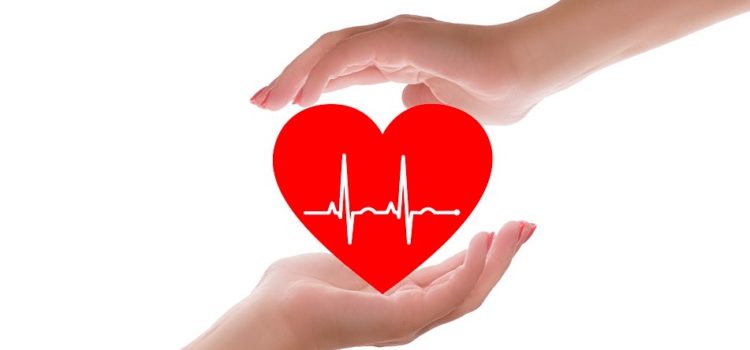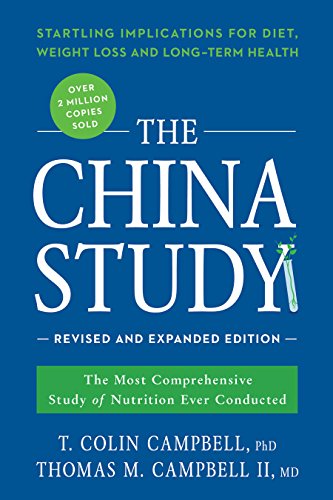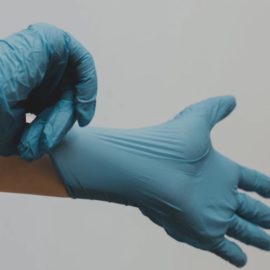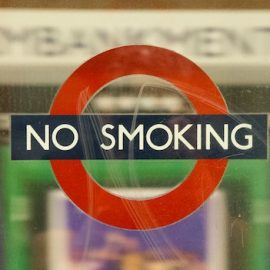

This article is an excerpt from the Shortform summary of "The China Study" by Colin Campbell. Shortform has the world's best summaries of books you should be reading.
Like this article? Sign up for a free trial here .
Heart disease kills 40% of Americans. What are the best heart disease treatments? And is there an effective diet for heart disease management?
Although we’ve made huge technological advances in heart disease treatment, the most effective cure might still be what’s on your plate. We’ll cover the research exploring heart disease treatments, discuss why surgery may not be the safest (or most effective) treatment option, and learn the elements of the recommended diet for heart disease treatment.
Heart Disease Treatment: The Drawbacks of Technological Advances
As a society, we’ve become savvier about the impact on heart disease of lifestyle choices like smoking and exercise. But lifestyle choices haven’t been the primary focus of scientists and medical centers.
As heart disease has remained the primary killer in America, doctors, researchers, and institutions have devoted huge amounts of time, money, and energy to developing new surgeries, drugs, and devices to save lives.
In some ways, this push for better technology and medicine has been effective. For example, emergency room treatment has improved dramatically. From 1970, the chance of dying in the ER from a heart attack has fallen from 38% to 15%. Drug and surgery advances, combined with decreasing smoking rates, have resulted in a 58% decline in the disease’s death rate.
But while heart disease isn’t as fatal as it once was, we’re still getting heart disease at the same rate we were in the 1970s. And it still kills 2,000 Americans every day.
Let’s look at one revolutionary surgery that actually may do more harm than good.
Bypass Surgery: The Best Heart Disease Treatment Option?
During bypass surgery, surgeons restore blood flow to the heart by cutting out a chest artery or leg vein and connecting it to the heart, bypassing the clogged artery. In 1990, 1 out of every 750 Americans underwent a bypass surgery.
While bypass surgery was a major medical development, it’s not without its problems:
Problem #1: It can be fatal. 1 in 50 people die of complications.
Problem #2: It’s expensive. In 2011, a single bypass surgery cost between $70,000 and $200,000. The American Heart Association predicts a rise in the total cost of treating heart disease in America from $273 billion in 2011 to $818 billion in 2030.
Problem #3: There are dangerous side effects, including respiratory issues, infection, heart attacks, high blood pressure, and strokes. Clamping the vessels shut during the operation causes plaque debris to travel to the brain. This results in a series of mini-strokes. 79% of patients are cognitively impaired a week after surgery and may experience impairment long after that.
Problem #4: It’s ineffective. Within 3 years of the surgery, chest pain returns for one-third of patients. Within 10 years, half of bypass patients have chest pain, have had a heart attack, or have died. Additionally, studies show that people who have bypass surgeries don’t have fewer heart attacks than those who don’t.
Diet: A Safer Heart Disease Treatment Option
Many studies over the past 50 years have demonstrated that the U.S. has some of the highest rates of heart disease in the world, even compared with other Western countries.
Surgery and drugs are not the only ways to treat this ubiquitous disease of affluence.
When compared with societies that eat a traditional (non-Westernized) diet, the difference is dramatic. These studies generally demonstrate that the countries whose citizens eat the least saturated fat and animal protein and the most plant foods have the lowest risk of heart disease.
If you’re a heart disease patient, there are many reasons you might try changing your diet to manage your disease before taking prescription medications or having surgery.
Benefit #1: Diet is a safer treatment than surgery or medication. There are no known detrimental effects of eating a healthy diet for heart disease, which is made up of whole foods and is plant-based (known as the WFPB diet).
Benefit #2: Diet is a cheaper treatment than surgery or medication. Compared to the cost of bypass surgery, which can set individuals and insurance companies back $200,000, dietary counseling costs about $900, and year-long diet and lifestyle intervention programs cost around $7,000.
Benefit #3: As we’ll see in the Esselstyn study below, diet is a more effective treatment than surgery or medication.
Research on Diet as a Heart Disease Treatment
Dr. Caldwell Esselstyn
A Yale graduate and former army surgeon, Esselstyn has held many leadership positions at the Cleveland Clinic, the best center for cardiac care in the country, and in the 1990s he was named one of the best doctors in America.
Esselstyn’s prescription of small amounts of cholesterol-lowering medication combined with a plant-based diet has gotten some of the best results ever recorded in the treatment of this disease.
In a study he began in 1985, Esselstyn instructed his patients with advanced heart disease to avoid meat, fish, oil and most dairy products. (Five years into the program, Esselstyn changed his recommendation to no dairy products.)
For five years, Esselstyn met with his patients every two weeks to discuss their diet and measure blood cholesterol, blood pressure, and weight. In the evening, Esselstyn would call the patient to discuss the test results.
Results:
Over five years, cholesterol dropped from an average of 246 mg/dL to 132 mg/dL, far below the generally recommended 150 mg/dL target.
Clogged arteries opened in 70% of the patients, effectively reversing their disease.
In the eight years prior to the start of the study, the 18 participants had had a combined 49 coronary events, including bypass surgery, angioplasty, strokes, and heart attacks. But in the 11 years after the start of the study, there was only one coronary event among the 18 patients, and the patient who experienced that event had strayed from the dietary recommendations for two years. (When he started to experience chest pain, the single “coronary event” in the study, the patient went back to the plant-based diet and the chest pain disappeared.)
In contrast, the five participants who dropped out of the program near its start had a combined ten new coronary events in ten years.
17 years out, only one patient in the study had died. 25 years out, all but five of the original participants were still alive (and the five who passed hadn’t died from coronary heart disease).
In a larger study published in 2014, Esselstyn tracked 198 patients. 177 patients stuck to his dietary program. 21 did not. Over about four years, only one of the 177 compliant patients had a stroke. Among the 21 noncompliant patients, 62% suffered strokes.
Dr. Esselstyn’s results, <1% stroke rate versus 62%, seem to indicate that he’s found a cure to heart disease. However, many doctors still hesitate to seriously recommend this dietary cure to their patients, thinking it too “extreme,” apparently much more extreme than bypass surgery.
If you’re one of the many people living with heart disease, consider changing your diet. Eating a plant-based diet may be the most effective heart disease treatment.
———End of Preview———

Like what you just read? Read the rest of the world's best summary of "The China Study" at Shortform . Learn the book's critical concepts in 20 minutes or less .
Here's what you'll find in our full The China Study summary :
- Why animal proteins (meat, milk) might cause cancer, diabetes, and other diseases
- Why the medical institution is structured to hide the truth about disease and food
- The precise diet you'll need to eat to live longer and feel happier






